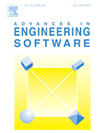期刊简介
Systems Engineering is a discipline whose responsibility it is to create and operate technologically enabled systems that satisfy stakeholder needs throughout their life cycle. Systems engineers reduce ambiguity by clearly defining stakeholder needs and customer requirements, they focus creativity by developing a system’s architecture and design and they manage the system’s complexity over time. Considerations taken into account by systems engineers include, among others, quality, cost and schedule, risk and opportunity under uncertainty, manufacturing and realization, performance and safety during operations, training and support, as well as disposal and recycling at the end of life. The journal welcomes original submissions in the field of Systems Engineering as defined above, but also encourages contributions that take an even broader perspective including the design and operation of systems-of-systems, the application of Systems Engineering to enterprises and complex socio-technical systems, the identification, selection and development of systems engineers as well as the evolution of systems and systems-of-systems over their entire lifecycle.Systems Engineering integrates all the disciplines and specialty groups into a coordinated team effort forming a structured development process that proceeds from concept to realization to operation. Increasingly important topics in Systems Engineering include the role of executable languages and models of systems, the concurrent use of physical and virtual prototyping, as well as the deployment of agile processes. Systems Engineering considers both the business and the technical needs of all stakeholders with the goal of providing a quality product that meets the user needs. Systems Engineering may be applied not only to products and services in the private sector but also to public infrastructures and socio-technical systems whose precise boundaries are often challenging to define.
系统工程是一门学科,它的职责是创建和运行技术上支持的系统,以满足利益相关者在其整个生命周期中的需求。系统工程师通过明确定义利益相关者的需求和客户的要求来减少模糊性,他们通过开发系统的架构和设计来集中创造力,他们随着时间的推移来管理系统的复杂性。系统工程师考虑的因素包括质量、成本和进度、不确定性下的风险和机会、制造和实现、运行期间的性能和安全、培训和支持以及寿命结束时的处置和回收。该杂志欢迎在系统工程领域的原创投稿,但也鼓励采取更广泛的视角,包括系统的系统的设计和操作,系统工程在企业和复杂的社会技术系统中的应用,以及系统和系统的系统在其整个生命周期中的演变。系统工程将所有学科和专业组整合成一个协调的团队工作,形成一个从概念到实现再到操作的结构化开发过程。系统工程中越来越重要的主题包括可执行语言和系统模型的作用、物理和虚拟原型的同时使用以及敏捷过程的部署。系统工程考虑所有利益相关者的业务和技术需求,目标是提供满足用户需求的高质量产品。系统工程不仅可以应用于私营部门的产品和服务,也可以应用于公共基础设施和社会技术系统,这些系统的精确边界往往很难界定。
《Systems Engineering》期刊已被查看: 次









